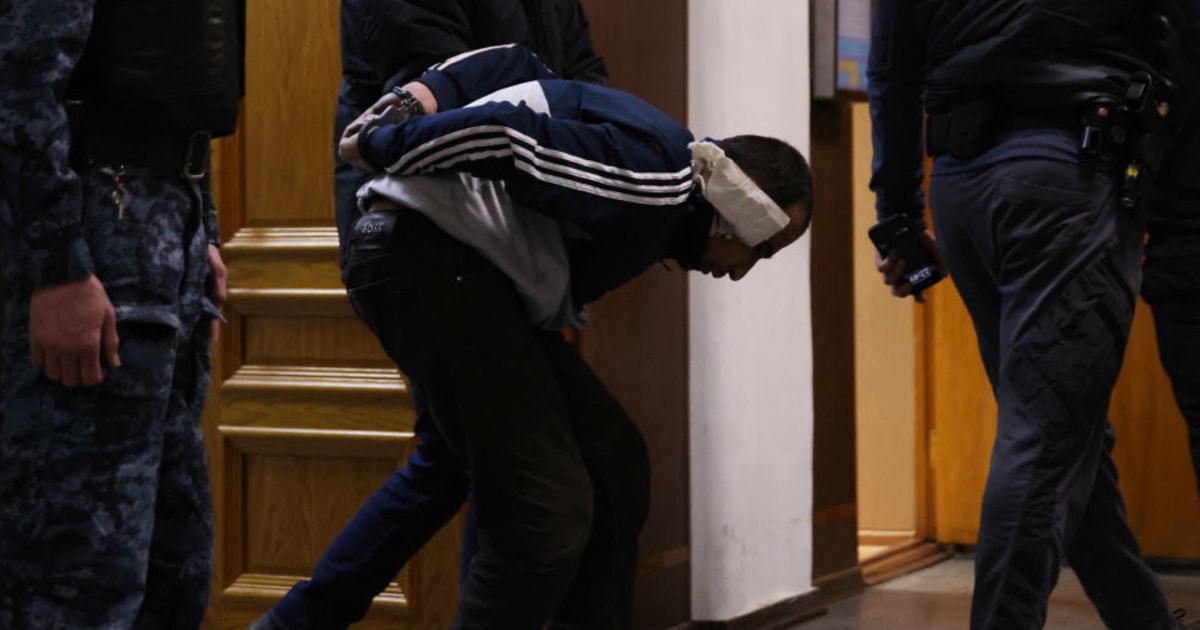SWIFT.
These are five letters that can sometimes be found on our bank details or when making a transfer.
Five letters behind which hides a titanic network, allowing banks and other financial institutions to make transfers around the world.
Real threat or simple warning?
Under pressure from the Americans, Russia could be disconnected, in retaliation for the situation around Ukraine, at the risk of precipitating Vladimir Putin's country into an unimaginable crisis.
What is Swift?
Behind the acronym Swift we find the company “Society for Worldwide Interbank Financial Telecommunication”. Based in Belgium, this company created in 1979 has set up a kind of hypersecure messaging service dedicated to financial transactions. “It is an informational intermediary, making it possible to put two banks in contact”, explains to the Parisian Yamina Fourneyron, professor of economics at the University of Lorraine and researcher at BETA. Its services, according to the company, are today used by more than 11,000 financial institutions in more than 200 countries around the world. In other words, a giant that nobody can a priori do without.
Contrary to what one might think, Swift "does not operate the transfer of funds", notes Yamina Fourneyron.
“Swift just indicates to bank A that bank B has made an operation concerning it, so this allows the customer's account to be debited and that of the other customer to be credited,” adds the expert.
When a partnership is formed between two banks, Swift's mission ends there, “otherwise it seeks a third-party bank that has a partnership with both banks in order to carry out the operation”.
Internationally, SWIFT is the equivalent of SEPA in the European Union.
But the latter, under the bosom of the European Central Bank, does not require banks to have partnerships with each other.
Why disconnect Russia?
“No option is excluded”, explained Tuesday the spokesperson for the White House, Jen Psaki, questioned precisely on this point. Russia would thus be sanctioned vis-à-vis the situation in Ukraine, with the United States preparing for a future invasion of the country by Russian troops. "It would be a serious decision for Russia, but also for the European companies which are in Russia or which exchange with it", details Parisian Carole Grimaud-Potter, professor of geopolitics of Russia at the University of Montpellier. "It would have an impact on all international business," she adds.
This is not the first time that the West has threatened to disconnect Russia from the SWIFT protocol. In 2014, already in retaliation for the annexation of Crimea by Russia, the European Parliament passed a non-binding resolution "calling on the European Union to consider the exclusion of Russia (…) from the SWIFT system" . In the end, Russia had never been excluded. Already at the time, the United States had encouraged the measure.
However, such a sanction would not be unprecedented.
Already at the helm, with the support of the European Union, the Americans had forced the Swift company in 2012 to disconnect Iran, in the grip of sanctions against a backdrop of disagreements over nuclear power.
A measure taken again by Donald Trump in 2018, by restoring sanctions against Iran.
“It's very disabling for a banking system to find itself sidelined,” explains Thierry Coville, researcher at IRIS, specialist in Iran.
North Korea was also disconnected in 2017, after missile firing tests.
Should we be worried about it?
However, should this threat be taken seriously? “I have been very clear, if indeed he invades Ukraine”, there will be “economic consequences like he has never seen”, warned in December the American president, Joe Biden, during a exchange with Vladimir Putin. Russia disconnected from Swift, "both parties will suffer," says Carole Grimaud-Potter. The specialist sees Washington's declarations as "a scarecrow" rather than a real threat. Thierry Coville notes: “If the country opposite has the means to respond, and Russia has, because it exports energy in particular, no one will be a winner. »
Iran had managed to circumvent Swift's blockade. "The process was to forge partnerships with banks that were friends of Iran in order to be able to make international transfers," explains Yamina Fourneyron. But the condemnation in 2014 of the French bank BNP Paribas, in particular for having helped Iran, but also Sudan and Cuba, to circumvent American sanctions by transiting funds, could shower these inclinations. "Swift facilitates contact, but we can still do things the old way," says Yamina Fourneyron.
Today's episode may, however, give Russia a little more comfort in its desire to create a parallel system.
Launched in 2014, a direct consequence of the first shutdown threat, the SPFS (for “Financial Message Transfer System”) is now at work.
Proof of Russia's desire to override American supremacy, Moscow has signed contracts in China, India or Iran to expand its system, with the ambition of seeing 30% of transactions to Russia go through the SPFS in 2023. Last December, amid tensions with the West, all banks in Belarus migrated to the Russian system.
China has, for its part, launched the CIPS for Swift competition.
What divide the powers a little more.












